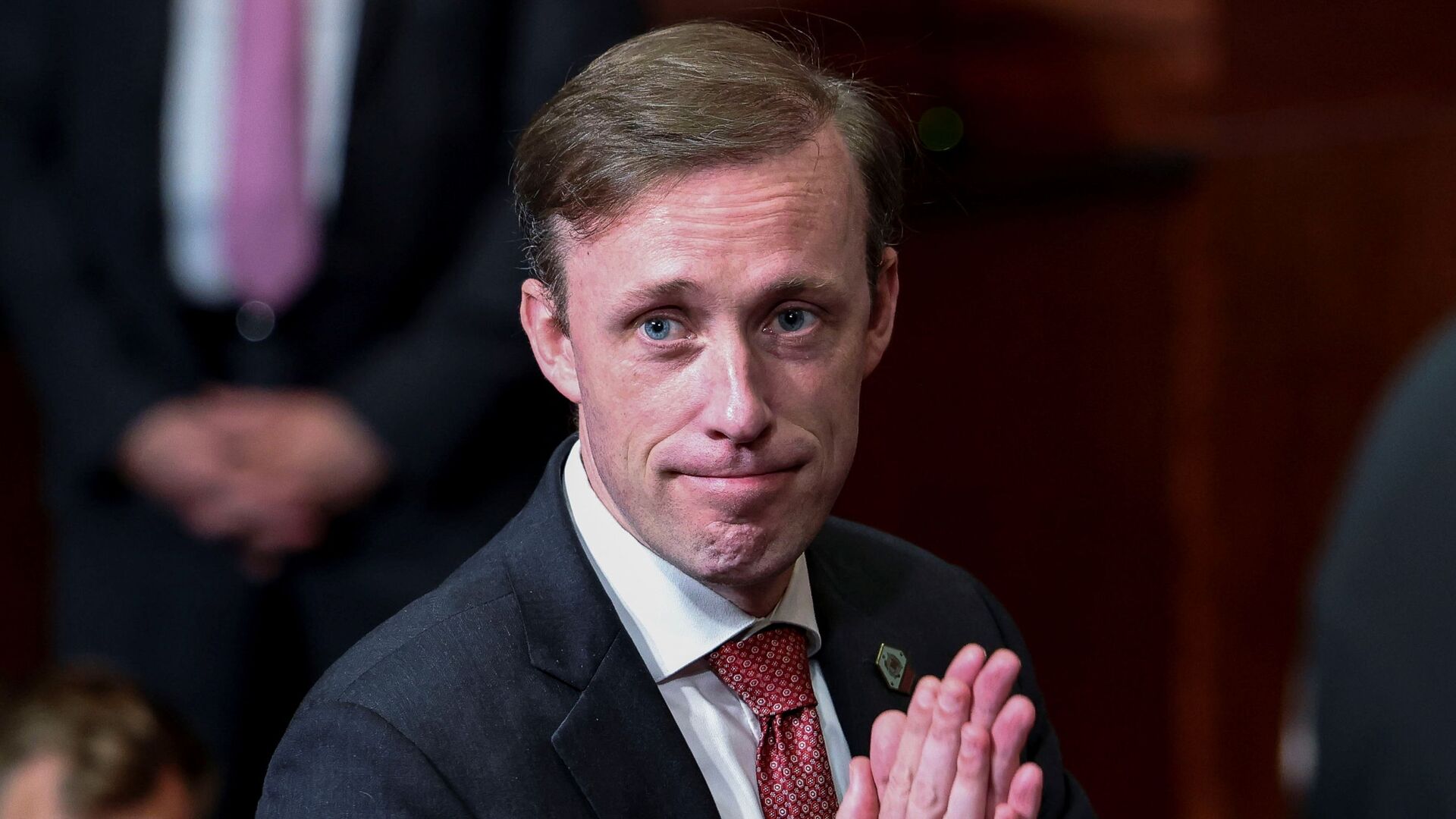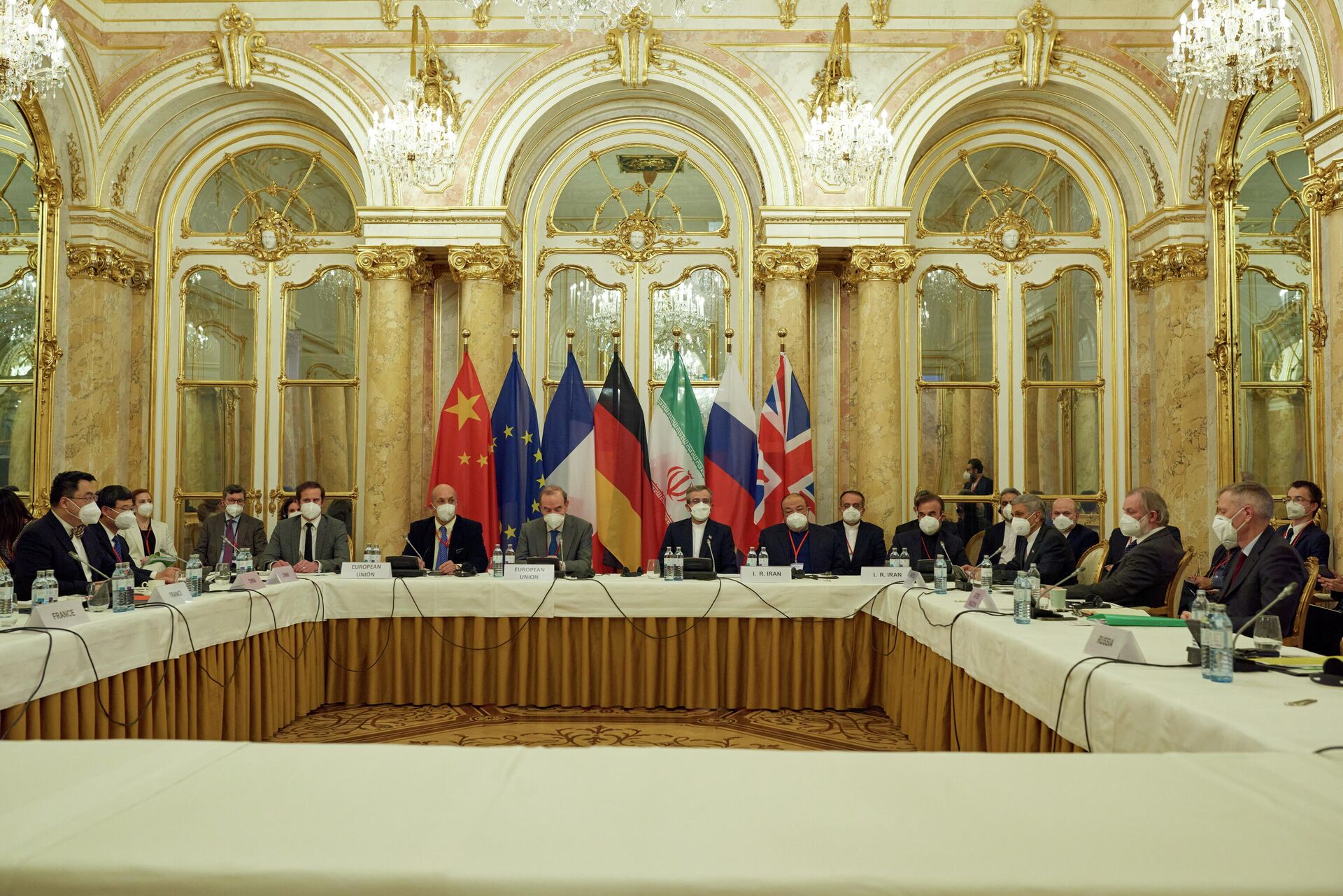Iran Nuclear Deal Talks to End ‘Within Weeks’, Sullivan Tells Israeli Paper During Jerusalem Visit
23:15 GMT 22.12.2021 (Updated: 17:25 GMT 15.01.2023)

© REUTERS / EVELYN HOCKSTEIN
Subscribe
After meeting with US allies, US national security adviser Jake Sullivan has said the time for settling the outstanding issues with Iran on returning to the Joint Comprehensive Plan of Action (JCPOA) deal would soon draw to a close. The US left the deal in 2018, claiming without proof that Iran was violating the deal.
"There is still room for a diplomatic effort," Sullivan told Israeli daily paper Haaretz in a Wednesday interview, adding that “within weeks,” the US would know "whether Iran is ready for the diplomatic solution.”
The comments come as Sullivan traveled to Jerusalem to meet with Israeli Prime Minister Naftali Bennett to discuss Washington’s commitment to Israeli security. Jerusalem has long been opposed to the 2015 deal between Iran, the US, UK, Germany, France, Russia, China, and the European Union, which lowered economic sanctions against Iran in exchange for Iran accepting strict limitations on the nuclear fuel it could produce.
The US pulled out of that deal in 2018, claiming alongside Israel that Iran had been secretly violating its terms and was still in pursuit of a nuclear weapon, even though that program had ended 15 years earlier and the country’s clerical leadership had denounced the use of all weapons of mass destruction as violations of Islam.

Deputy Secretary General of the European External Action Service (EEAS) Enrique Mora and Iran's chief nuclear negotiator Ali Bagheri Kani wait for the start of a meeting of the JCPOA Joint Commission in Vienna, Austria November 29, 2021.
© REUTERS / EU Delegation in Vienna
As a consequence, Iran began increasing the purity of uranium-235 it produced and the volume it stored, backing away from the terms of the deal in a bid to pressure Washington to remove its sanctions and return to the deal.
After US President Joe Biden took office in January, talks on reviving the deal began, with the seventh round in Vienna, Austria, concluding earlier this month without resolution.
"I won't talk about the details of the negotiations," Sullivan told Haaretz about the Vienna talks, adding that "we intend to guarantee that Iran will not acquire nuclear weapons."
Israel and Saudi Arabia, two close US partners in the Middle East, have opposed reviving the deal without stronger limitations being placed on Iran, and the US and its allies have considered attempting to add them to the deal as well - a suggestion Tehran has balked at.
Earlier on Wednesday, Axios published an article based on the testimony of four senior Israeli officials who met with Sullivan, reporting that the US laid out three possible near-term scenarios for what could happen with Iran.
The first is that Washington and Tehran could reach an accord in the next few weeks, return to the JCPOA and bury the hatchet. Sullivan was reportedly skeptical this was possible.
The second was termed a “freeze for freeze” interim agreement, which would stop Iran from increasing its uranium enrichment to weapons-grade 90% purity, but not lower US sanctions or lead to a longer-term detente. Neither the Iranians or the Israelis seem to approve of such a situation, though for opposite reasons.
The third possibility is that no new deal is reached and the US puts further sanctions on Iran in an attempt to pressure them into agreement.
The Israeli officials also told Axios that the door to reaching a deal would close by the end of January 2022.
"What happens in Vienna has profound ramifications for the stability of the Middle East and the security of Israel for the upcoming years,” Bennett told Sullivan on Wednesday.
Also on Wednesday, Israel Defense Forces Maj. Gen. Tomer Bar, who is preparing to assume command over the Israeli Air Force, told Israeli daily Yediot Acharonot on Wednesday that the IAF was ready to attack Iran “tomorrow morning” if necessary.
"Preparations have been underway for a while, including procurement of the F-35 jets and missile defense systems," Bar told the paper, adding that if the operation is necessary, "there is no way that I will fly 1,000 kilometers and come home without succeeding in my mission."
In October, the Knesset approved a special $1.5 billion budget for preparing such a strike. However, the Times of Israel reported, citing an anonymous source, that contrary to Bar’s comments, planning the strike would take nearly a year.
Israel has developed a reputation for being willing to carry out such operations, not the least of which was the 1981 airstrike on Iraq’s unfinished Osirak nuclear power plant. As with Iran, Tel Aviv feared Iraq intended to use the plant to further its nuclear weapons program, although at the time, Iraqi leader Saddam Hussein actually had a nuclear weapons program. Ironically enough, the fledgling Iranian Islamic republic, which was fending off an Iraqi invasion of Khuzestan Province and thus the most likely target for an Iraqi nuclear weapon, secretly helped Israel destroy the reactor.
However, unlike Iraq, Iran has an extensive air defense system, most of its nuclear facilities are deep underground, and has no active nuclear weapons program, as Israeli military intelligence has admitted.
